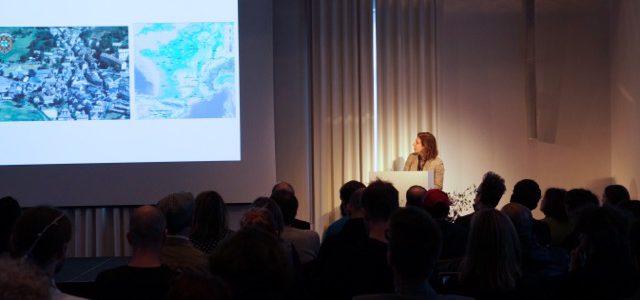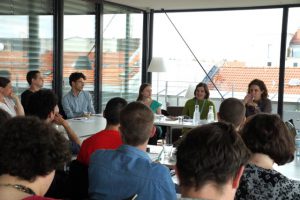In this lecture, hosted by the Hidden Persuaders project and the Berlin Institute for Cultural Inquiry, Camille Robcis explores the intersections of politics, philosophy, and radical psychiatry in 20th century France. It focuses on a psychiatric reform movement called ‘institutional psychotherapy’ which had an important influence on many intellectuals and activists, including François Tosquelles, Jean Oury, Félix Guattari, Frantz Fanon, Georges Canguilhem, and Michel Foucault. Anchored in Marxism and in Lacanian psychoanalysis, institutional psychotherapy advocated a fundamental restructuring of the asylum in order to transform the theory and practice of psychiatric care. More broadly, for many of these thinkers, psychiatry offered a lens to rethink the political in the particular context of postwar France.
Camille Robcis is Associate Professor of History at Cornell University. Her research focuses on three broad issues: the relationships between intellectuals, ideas, and politics; the historical construction of norms; and the articulation of universalism and difference in the context of modern France In 2013 she published the book The Law of Kinship: Anthropology, Psychoanalysis, and the Family in France, which sought to explain why and how, in the French context, academic discourses on kinship have intersected and overlapped with political debates on the family. She has published widely in journals including The South Atlantic Quarterly, Constellations, The Journal of Modern History and Social Text. You can read more about her research on Institutional Psychotherapy on the Hidden Persuaders’ blog.
This lecture was part of a one-day event at the ICI on Radical Psychiatry, Psychoanalysis and 1968, co-organised by ICI’s Hannah Proctor and Hidden Persuaders’ Sarah Marks, with participation from team members Katie Joice, Ian Magor and Charlie Williams. Workshop participants debated how understandings of mental health and illness were transformed in the 1960s as a generation of psychiatrists began to question the orthodoxy of their profession, reframing the aetiology of psychic distress as a consequence of an alienating, consumer society. Though the radical psychiatry movement’s roots in existentialism and Marxist thought are often emphasised, the workshop centred attention on how radical psychiatry developed through a critical engagement with psychoanalysis: both challenging the assumptions of the Freudian canon, and re-inscribing concepts of the unconscious for the postwar age. It examined how the actors and theories of the radical psychiatry movement informed – and were shaped by – the political movements that emerged around 1968. Finally, it traced how ideas about social, institutional or technological coercion, either hidden or in plain sight, were mobilised by radical psychiatrists, echoing contemporaneous political critiques of ‘modern civilization’.





